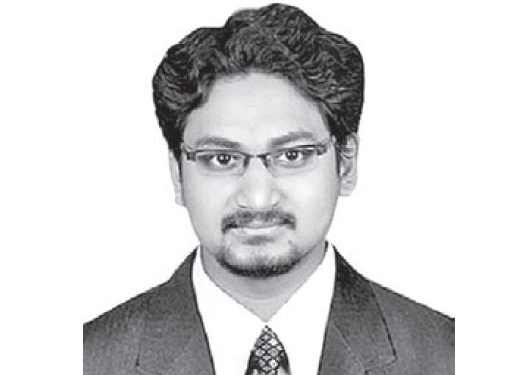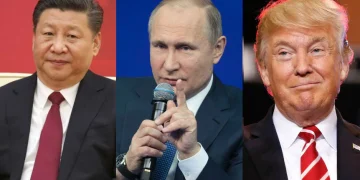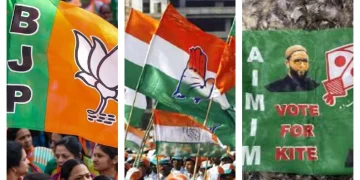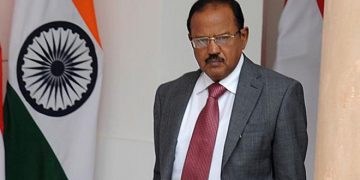By Ashyashree Praharaj
It is often said that while the world was still learning to walk, Indian civilisation was already running. Before politics, philosophy, or science became formal disciplines globally, the Indian subcontinent was a centre for organised urban growth, artistic endeavours, spiritual discovery, and scholarly cooperation. Cities like Harappa and Mohenjo-Daro showcased sophisticated planning and engineering expertise. The Vedic era gave rise to intellectual and metaphysical ideas that profoundly influenced global philosophy. Universities such as Takshashila and Nalanda drew students from Greece, China, Persia, and Southeast Asia. India represented more than just a land. It embodied a civilisational experience.
For centuries, the world has known India as Sone ki Chidiya, the Golden Bird. Its wealth in gold, precious stones, spices, textiles, and agricultural abundance made it a global economic powerhouse. But more than material riches, India’s true wealth lay in its intellectual traditions. Mathematicians like Aryabhatta and Brahmagupta explored the universe and introduced the concept of zero. Physicians such as Charaka and Sushruta wrote medical treatises that have influenced global medical science. Philosophers like Kapila and Krishna, Patanjali and Shankaracharya, examined the nature of existence, consciousness, discipline, and duty.
Even the greatest civilisations face challenges over time. India’s decline was gradual, driven by internal stagnation and external pressures. A key internal issue was political division. Despite shared cultural bonds, India seldom remained a unified political state. The subcontinent was home to numerous kingdoms, each wealthy but often at odds with one another. The absence of coordinated defence made India susceptible to invasions. From the Indo-Greeks and Kushans to waves of Central Asian and Afghan invaders, the region repeatedly changed hands. Some rulers integrated with Indian culture, enriching it, while others destabilised institutions and disrupted education. The destruction of centres like Nalanda, Odantapuri, and Vikramshila was not merely symbolic but also impeded the transmission of knowledge through generations.
The most significant disruption, however, took place during British colonial rule. Unlike earlier rulers who often integrated with local culture, the British aimed to extract resources and exploit India’s wealth. They systematically dismantled India’s prosperous textile and handicraft industries to serve British economic interests. Heavy taxes and revenue policies drained rural communities, leading to widespread poverty. The colonial administration also overhauled education, with Thomas Macaulay’s reforms deliberately designed to disentangle Indians from their cultural and intellectual heritage, creating a class of clerks rather than thinkers. This change caused a form of psychological colonisation, where many Indians began to view their own culture as inferior. Traditional knowledge systems, such as Ayurveda, classical philosophy, Sanskrit scholarship, and indigenous governance, were marginalised and dismissed as outdated or unscientific, despite their rich history and effectiveness.
External forces alone cannot be blamed. Over time, the Varna system, which was initially based on skill and ability, became a rigid caste hierarchy. Social mobility diminished, and intellectual curiosity was replaced by ritualistic orthodoxy. The tradition of debate, once a hallmark of Indian philosophy, waned, and innovation slowed. A civilisation that once challenged everything grew hesitant to question itself.
Nonetheless, India retained its identity. Civilisations rooted in deep spiritual and cultural consciousness do not vanish. They recede, adapt, and reappear later. The medieval Bhakti movement revived spiritual inclusivity and emotional devotion. The Indian Renaissance, led by thinkers like Raja Ram Mohan Roy, Swami Vivekananda, and Rabindranath Tagore, restored cultural pride. The independence movement, driven by Mahatma Gandhi, Subash Chandra Bose, Bal Gangadhar Tilak, and others, rekindled the collective Indian spirit.
Independent India started its long journey of rebuilding. It has become a global leader in IT, a spacefaring nation, an emerging economic power, and a cultural influencer in areas like wellness, yoga, Ayurveda, and spirituality. Concepts from the past, such as mindfulness, holistic healing, and non-dualistic philosophy, are being globally rediscovered.
The path forward is straightforward: India needs to revitalise its knowledge systems, viewing them as future resources rather than mere relics. Ancient wisdom should be integrated with modern science. Education should foster critical thinking rather than relying on rote learning. Diversity should be embraced without losing unity. Most importantly, India must regain its intellectual confidence, which once made it a guiding light for the world.
The writer is a Research Scholar, Department of Business Administration, Berhampur University.






































